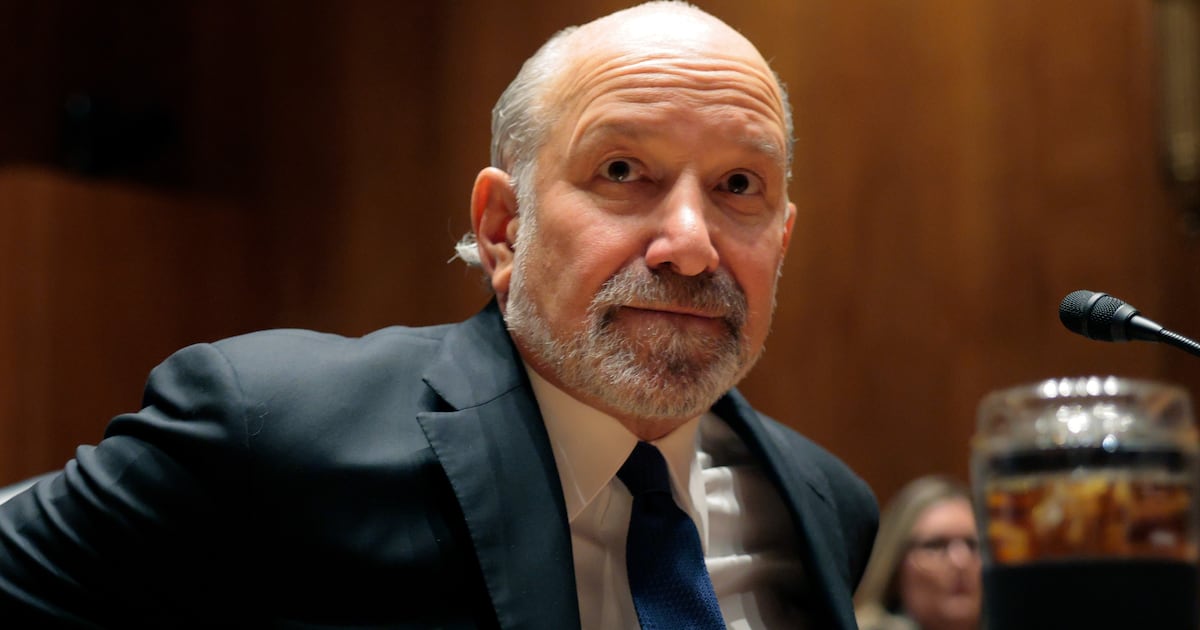When a new Congress convenes on Tuesday, lawmakers will do what they have done for centuries: elect a speaker.
But for the first time in exactly 100 years, that election may not be decided on the first ballot—and may not be settled by the day’s end.
That’s because, just hours before the roll is called, Speaker-elect Rep. Kevin McCarthy (R-CA) doesn’t appear to have the votes. At least not yet. And barring a dramatic resolution in the closing hours, Tuesday’s vote could be the most chaotic in the modern history of the chamber.
For months, there have been five hard ‘no’ votes against him—the “Never Kevins”—who have committed to voting as a bloc. But on top of those five—which would already be enough to stymie McCarthy if everyone voted—there are nine votes that appear to be leaning against McCarthy.
That group of nine, led by Rep. Chip Roy (R-TX), argued in a letter this weekend that McCarthy has not met their demands for proposed rule changes.
“Thus far, there continue to be missing specific commitments with respect to virtually every component of our entreaties,” the group wrote on Sunday.
“Nothing changes when nothing changes, and that must start from the top,” one of the signees, Rep. Scott Perry (R-PA), tweeted. “Time to make the change or get out of the way.”
Getting out of the way is more complicated than Perry suggests. In contrast to the five members who are “Never Kevin,” there are dozens of Republicans who’ve declared themselves “Only Kevin,” meaning they will only vote for McCarthy to be speaker—or so they say.
Dozens more Republicans haven’t taken a public position, and there could be plenty who say they support McCarthy now but would perhaps flip once it becomes clear that McCarthy doesn’t have the votes.
But McCarthy’s opposition is undoubtedly a small minority of the GOP’s new, 222-seat House majority. They’re a minuscule faction of hardline conservatives, many with personal bones to pick and plenty of enemies in their own right. The problem is, McCarthy’s opponents don’t have to be large in numbers to be effective.
The current breakdown in the House is 222-212, with one vacancy after Democratic Rep. Don McEachin died after the midterm elections. If everyone votes, McCarthy needs 218 votes—and those five hard noes already put his number to 217.
McCarthy could overcome that math if some members voted “present.” Just one member voting present would lower the threshold to 217. But that member would either have to be a Democrat or one of the five Republicans who have promised to vote against McCarthy—otherwise McCarthy would just be lowering the math from his own votes.
A senior GOP aide involved in the speakership battle told The Daily Beast Tuesday night that Republicans have no expectation that Democrats would bail out McCarthy and vote present. But even more problematic for McCarthy is that, as it currently stands, it looks like there are potentially more than a dozen Republicans ready to vote against him. That would make the math extremely difficult, with no clear path to a majority for McCarthy.
However, one of the few things in McCarthy’s favor is that the Republicans opposing his speakership don’t have a real alternative.
When Rep. Andy Biggs (R-AZ) faced off against McCarthy during a closed-door vote for speaker in November, McCarthy won 188-31, with an additional five Republicans voting for other people.
On Tuesday, Republicans opposing McCarthy may choose to vote for Biggs again, but the hard-right former Freedom Caucus chairman has no real path to a majority of his own.
Instead, a Republican aide involved in the speakership battle told The Daily Beast that Rep. Jim Jordan (R-OH), the inaugural Freedom Caucus chairman and a close ally of Donald Trump’s, is the ultimate target for the speakership coup, with some Republicans discussing a vote for Biggs on the first ballot and a vote for Jordan on a second ballot. There’s even a belief that a small number of Republicans might join in to vote for Jordan on a second ballot and create the perception that McCarthy’s vote total is going in the wrong direction—yet another sign that McCarthy is toast.
Rep. Bob Good (R-VA) told Fox News Monday he believes a “true” conservative would emerge amid the chaos. One of McCarthy’s most ardent detractors, Rep. Matt Gaetz (R-FL), has publicly and repeatedly urged Jordan to run. While Jordan unsuccessfully challenged McCarthy for the role of minority leader in 2018, he has since become a stalwart ally of leadership.
While Jordan may be another long shot in his own right, the point seems to be demonstrating that McCarthy doesn’t have the votes, and at the very least, that he’ll have to make more concessions to his detractors.
Meanwhile, McCarthy’s longtime No. 2, Rep. Steve Scalise (R-LA), has publicly backed the GOP leader. But Scalise is more popular among conservative lawmakers and well-liked by the mainstream rank-and-file of the conference. If McCarthy falters, Scalise will be watched very closely.
Whether McCarthy succeeds or suffers an unprecedented failure may hinge on whether the swing voters in this election—those looking for changes to House rules—are satisfied with what reforms he’s willing to accept.
Some of their demands have been easy, like ending remote voting, removing metal detectors from outside the House chamber, and ensuring bills are posted for 72 hours before they’re put to a vote. McCarthy has already made agreements on these contentions. He’s also promised to elevate hardline conservatives to the most prestigious and powerful committees, like Appropriations, Judiciary, and Ways and Means, Punchbowl News reported.
But the group is also pushing some tougher sells for McCarthy, like giving members the ability to offer any relevant amendment on appropriations bills, allowing amendment votes on any bill if there are a certain number of Republicans cosponsoring, and reinstating a rule that would allow members to call for a motion to remove the speaker at any time. McCarthy reportedly announced to House Republicans this weekend he’d agree to the motion to vacate demand, but only at a five-member threshold.
That particular fight, which could determine how long someone stays speaker, has been one of the more public fights. But it’s also one of the less consequential disagreements with conservatives.
The Club for Growth—a conservative group that was often a thorn in Speaker John Boehner and Speaker Paul Ryan’s side—issued a whip notice Monday night urging Republicans to vote against McCarthy.
“What’s more important to the American People than any individual member is the dire necessity to restore the House of Representatives to a legislative body that gives all Members from all communities a voice to speak on behalf of constituents, the ability to amend and impact legislation, and a vote on behalf of the People they were elected to represent,” the Club for Growth said in its press release.
The group also said the speaker “must also pledge” to hold a vote on a constitutional amendment on term limits for members of Congress, as well as returning to the rules package from eight years ago that allowed “open rules”—meaning anyone can get an amendment vote—on major pieces of legislation.
That specific change may be one of the toughest; if Republicans are already going to have trouble passing legislation with such a slim and unruly majority, then the difficulty would only be compounded if every member could offer amendments. A common tactic of the minority is offering politically tricky amendment votes on legislation to put members on the record, whether that be on abortion, Confederate statues, or any other politically thorny issue.
Another tactic is to get a vote on what’s called a “poison pill” amendment, in which the amendment is adopted with a majority but then sinks the overall legislation.
Leaders over the last few decades—but particularly in the last decade—have learned that it’s much easier to govern with a closed process. The open appropriations process fell apart under Boehner because of Confederate flag amendments, and Speaker Ryan only held one “open rule” vote during his entire speakership. Pelosi didn’t hold any over the last four years.
What conservatives are actually fighting for is a radical change to how the House conducts its business—and it’s a change that McCarthy has been resistant to make.
Ultimately, McCarthy’s calculus may be that he’d rather be speaker under almost impossible conditions than not be speaker and preserve the ability of someone else to govern more effectively.
Even if conservatives succeed in blocking McCarthy, they have every intention of insisting on the same changes for the next person up.
All of which is to say: McCarthy still has a pathway. He could make the changes conservatives want and hope for the best. Or he could put his foot down and try to outmaneuver his detractors.
All of McCarthy’s moves over the last two months—from orchestrating the “Only Kevin” movement to making a big show of the motion to vacate changes—have been about making it difficult for conservatives to oppose him.
Now, just hours before the vote, both sides appear ready to call each other’s bluff and let the process play out—slowly and painfully, roll call vote by roll call vote.
Despite not yet having the job, McCarthy is projecting confidence. On Monday, when a reporter asked McCarthy if he has the votes, he said, “I think we’re gonna have a good day tomorrow.”
That prediction is bolstered by the clearest sign of confidence for a speaker in waiting: McCarthy has already moved into the Speaker’s Capitol suite.
Whether he gets to stay remains to be seen.
Matt Fuller contributed to this report.











